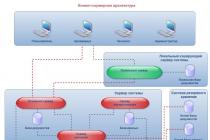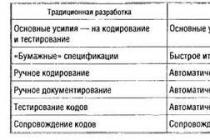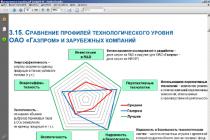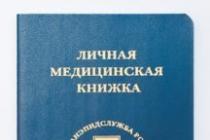Civil Code of the Russian Federation Article 152. Protection of honor, dignity and business reputation
(see text in previous edition)
1. A citizen has the right to demand in court a refutation of information discrediting his honor, dignity or business reputation, if the person who disseminated such information does not prove that it is true. The refutation must be made in the same way that information about the citizen was disseminated, or in another similar way.
At the request of interested persons, the protection of the honor, dignity and business reputation of a citizen is allowed even after his death.
2. Information discrediting the honor, dignity or business reputation of a citizen and disseminated in the media must be refuted in the same media. A citizen in respect of whom the said information is disseminated in the mass media has the right to demand, along with a refutation, also the publication of his answer in the same mass media.
3. If information discrediting the honor, dignity or business reputation of a citizen is contained in a document emanating from an organization, such a document is subject to replacement or revocation.
4. In cases where information discrediting the honor, dignity or business reputation of a citizen has become widely known and in connection with this the refutation cannot be brought to public attention, the citizen has the right to demand the removal of the relevant information, as well as the suppression or prohibition of the further dissemination of the specified information by withdrawing and destruction, without any compensation, of copies of material carriers made for the purpose of introducing into civil circulation containing the specified information, if without the destruction of such copies of material carriers, the removal of the relevant information is impossible.
5. If information that discredits the honor, dignity or business reputation of a citizen becomes available on the Internet after its dissemination, the citizen has the right to demand the removal of the relevant information, as well as a refutation of the specified information in a way that ensures that the refutation is brought to the attention of Internet users.
6. The procedure for refuting information discrediting the honor, dignity or business reputation of a citizen, in other cases, except for those specified in paragraphs 2 - of this article, is established by the court.
7. The application to the violator of measures of responsibility for non-execution of a court decision does not release him from the obligation to perform the action provided for by the court decision.
8. If it is impossible to identify the person who has disseminated information discrediting the honor, dignity or business reputation of a citizen, the citizen in respect of whom such information has been disseminated has the right to apply to the court for recognition of the disseminated information as untrue.
9. A citizen in respect of whom information is disseminated that discredits his honor, dignity or business reputation, along with the refutation of such information or the publication of his answer, has the right to demand compensation for losses and compensation for moral damage caused by the dissemination of such information.
10. The rules of paragraphs 1 - of this article, with the exception of the provisions on compensation for moral damage, may also be applied by the court to cases of dissemination of any information about a citizen that does not correspond to reality, if such a citizen proves that the indicated information does not correspond to reality. The limitation period for claims made in connection with the dissemination of the said information in the mass media is one year from the date of publication of such information in the relevant mass media.
11. The rules of this article on the protection of the business reputation of a citizen, with the exception of the provisions on compensation for moral damage, respectively apply to the protection of the business reputation of a legal entity.
1. A citizen has the right to demand in court a refutation of information discrediting his honor, dignity or business reputation, if the person who disseminated such information does not prove that it is true. The refutation must be made in the same way that information about the citizen was disseminated, or in another similar way.
At the request of interested persons, the protection of the honor, dignity and business reputation of a citizen is allowed even after his death.
2. Information discrediting the honor, dignity or business reputation of a citizen and disseminated in the media must be refuted in the same media. A citizen in respect of whom the said information is disseminated in the mass media has the right to demand, along with a refutation, also the publication of his answer in the same mass media.
3. If information discrediting the honor, dignity or business reputation of a citizen is contained in a document emanating from an organization, such a document is subject to replacement or revocation.
4. In cases where information discrediting the honor, dignity or business reputation of a citizen has become widely known and in connection with this the refutation cannot be brought to public attention, the citizen has the right to demand the removal of the relevant information, as well as the suppression or prohibition of the further dissemination of the specified information by withdrawing and destruction, without any compensation, of copies of material carriers made for the purpose of introducing into civil circulation containing the specified information, if without the destruction of such copies of material carriers, the removal of the relevant information is impossible.
5. If information that discredits the honor, dignity or business reputation of a citizen becomes available on the Internet after its dissemination, the citizen has the right to demand the removal of the relevant information, as well as a refutation of the specified information in a way that ensures that the refutation is brought to the attention of Internet users.
6. The procedure for refuting information discrediting the honor, dignity or business reputation of a citizen, in other cases, except for those specified in paragraphs 2-5 of this article, is established by the court.
7. The application to the violator of measures of responsibility for non-execution of a court decision does not relieve him of the obligation to perform the action provided for by the court decision.
8. If it is impossible to identify the person who has disseminated information discrediting the honor, dignity or business reputation of a citizen, the citizen in respect of whom such information has been disseminated has the right to apply to the court for recognition of the disseminated information as untrue.
9. A citizen in respect of whom information is disseminated that discredits his honor, dignity or business reputation, along with the refutation of such information or the publication of his answer, has the right to demand compensation for losses and compensation for moral damage caused by the dissemination of such information.
10. The rules of paragraphs 1 - 9 of this article, with the exception of the provisions on compensation for moral damage, may also be applied by the court to cases of dissemination of any information about a citizen that does not correspond to reality, if such a citizen proves that the indicated information does not correspond to reality. The limitation period for claims made in connection with the dissemination of the said information in the mass media is one year from the date of publication of such information in the relevant mass media.
11. The rules of this article on the protection of the business reputation of a citizen, with the exception of the provisions on compensation for moral damage, respectively, apply to the protection of the business reputation of a legal entity.
Expert comment:
In the legal field, Art. 152 of the Civil Code of the Russian Federation occupies a unique place, since it is based mainly on subjective factors. Its norms are aimed at protecting honor and dignity, and each plaintiff is free to put forward his own versions of what, from his point of view, harms them.
Comments to Art. 152 of the Civil Code of the Russian Federation
1. Honor, dignity, business reputation are close moral categories. Honor and dignity reflect an objective assessment of a citizen by others and his self-esteem. Business reputation is an assessment of the professional qualities of a citizen or legal entity.
Honor, dignity, business reputation of a citizen in the aggregate determine the "good name", the inviolability of which is guaranteed by the Constitution (Article 23).
2. To protect the honor, dignity, business reputation of a citizen, a special method is provided: refutation of widespread discrediting information. This method can be used if there is a combination of three conditions.
First, the information must be damaging. The assessment of information as discrediting is based not on a subjective, but on an objective sign. In Resolution of the Plenum of the Supreme Court of the Russian Federation of August 18, 1992 N 11 "On some issues arising in the consideration by the courts of cases on the protection of the honor and dignity of citizens, as well as the business reputation of citizens and legal entities," it is specifically noted that "discrediting is information that does not correspond to reality, containing allegations of a violation by a citizen or organization of the current legislation or moral principles (of committing a dishonest act, improper behavior in the workforce, everyday life and other information discrediting production, economic and social activities, business reputation, etc.), which detract from the honor and dignity".
Secondly, information must be disseminated. The aforementioned Decree of the Plenum of the Armed Forces of the Russian Federation also clarifies what should be understood as the dissemination of information: "The publication of such information in the press, broadcast on radio and television and video programs, demonstration in newsreel programs and other mass media (media), presentation in official references, public speeches, statements addressed to officials, or a communication in any other form, including oral, to several or at least one person. It is specially emphasized that the communication of information to the person to whom they concern is not considered as dissemination in private.
Thirdly, the information must not be true. At the same time, the commented article enshrines the principle of the presumption of innocence of the victim inherent in civil law: information is considered untrue until the person who disseminated it proves the opposite (see Bulletin of the Armed Forces of the Russian Federation. 1995. N 7. P. 6).
3. For the protection of the honor, dignity and business reputation of the deceased, see comments. to Art. 150 GK.
4. In paragraph 2 of the commented article, the procedure for refuting discrediting information that was circulated in the media is specially highlighted. It is regulated in more detail in the Law of the Russian Federation of December 27, 1991 "On the Mass Media" (Vedomosti RF. 1992. N 7. Art. 300). In addition to the requirement that the refutation must be placed in the same media in which the defamatory information was disseminated, the Law established that it must be typed in the same font, in the same place on the page. If a refutation is given on radio or television, it must be broadcast at the same time of day and, as a rule, in the same program as the refuted message (Articles 43, 44 of the Law).
In the commented article, the procedure for refuting the information contained in the document is specially highlighted - such a document is subject to replacement. We can talk about replacing a work book, which contains a discrediting entry about the dismissal of an employee, characteristics, etc.
Although in all other cases the order of refutation is established by the court, it follows from the meaning of the commented article that it must be made in the same way that the defamatory information was disseminated. This is the position taken by the jurisprudence.
5. From paragraph 2 of the commented article, it follows that in all cases of infringement on honor, dignity and business reputation, a citizen is provided with judicial protection. Therefore, the rule established by the Mass Media Law, according to which the victim must first apply to the media with a request for refutation, cannot be considered as mandatory.
A special resolution on this issue is contained in the Decree of the Plenum of the RF Armed Forces dated August 18, 1992 N 11. It notes that "clauses 1 and 7 of article 152 of the first part of the Civil Code of the Russian Federation establish that a citizen has the right to demand in court a refutation of discrediting him honor, dignity or business reputation of information, and a legal entity - information discrediting its business reputation.At the same time, the law does not provide for the obligatory preliminary filing of such a demand against the defendant, including in the case when a claim is filed against the mass media that disseminated the indicated above information".
6. Paragraph 3 of the commented article establishes the procedure for protecting the honor, dignity and business reputation of a citizen in the event that information is disseminated in the media that is devoid of signs that give the right to refute it. It can be, for example, discrediting, but true information, or not discrediting information that does not correspond to reality, but at the same time, their distribution infringes on the rights and legitimate interests of a citizen, detracts from his business reputation. In these cases, the citizen has the right not to a refutation, but to an answer, which must be placed in the same media. Although such a method of protection as the publication of a response is established only in relation to the media, it is possible that it can also be used when disseminating information in a different way.
Failure to comply with these court decisions is punishable by a fine in accordance with Art. 406 Code of Civil Procedure and art. 206 APC in the amount of up to 200 minimum wages established by law.
7. Special methods of protection - giving a refutation or answer are applied regardless of the fault of the persons who allowed the dissemination of such information.
Paragraph 5 of the commented article confirms the possibility of using, in addition to special and general methods of protection, to protect honor, dignity and business reputation. At the same time, the most common ones are named: compensation for damages and compensation for moral harm. Property and non-property damage resulting from a violation of honor, dignity and business reputation is subject to compensation in accordance with the norms contained in Ch. 59 of the Civil Code (obligation due to harm). In accordance with these norms, compensation for property damage (losses) is possible only in case of guilty dissemination of information (Article 1064 of the Civil Code), and compensation for moral damage - regardless of guilt (Article 1100 of the Civil Code).
In addition to those mentioned, any other general methods of protection can be used (see the commentary to Article 12 of the Civil Code), in particular, the suppression of actions that violate the right or threaten to violate it (confiscation of the circulation of a newspaper, magazine, book, prohibition of the publication of a second edition and so on.).
8. Clause 6 contains one more special way of protecting the honor, dignity and business reputation of citizens in the case of anonymous dissemination of information: recognition by the court of the disseminated information as untrue. The Code of Civil Procedure does not establish the procedure for considering such requirements. Obviously, they should be considered in the order of special proceedings provided for the establishment of facts of legal significance (Chapters 26, 27 of the Code of Civil Procedure). The same procedure, obviously, can be used if there is no distributor (death of a citizen or liquidation of a legal entity).
The cases of anonymous dissemination of information do not include publications in the media without indicating their author. In these cases, there is always a distributor, and therefore, this media outlet is the responsible person.
9. In the event of a violation of the business reputation of a legal entity, it has the right to demand a refutation of the widespread discrediting information, replacement of the issued document, publication of a response in the media, establishment of the fact that the disseminated information does not correspond to reality, etc. The legal entity has the right to demand compensation for losses. With regard to non-pecuniary damage, it is in accordance with Art. 151 of the Civil Code is compensated only to citizens, since only they can undergo moral and physical suffering.
They are inseparable benefits of the individual. Citizens also have a business reputation. It is formed in the process of their economic activity. Legal entities also have a business reputation. All these benefits are protected by law.
The concept of honor and dignity
An assessment is established for an individual in terms of social and ethical norms. Honor refers to a certain measure of the socio-spiritual qualities of a person. At the same time, each subject has its own idea of its value. It is called dignity. It is recognized by the state for all members of society equally. The concepts of dignity and honor determine the attitude towards the subject as the highest value. These categories are closely related. Dignity acts as a certain reflection of honor as an assessment of society in the mind of the subject. Together, these categories form an organic whole, an integral feature of personality.
Business reputation
For people, it is determined by the level of professional qualifications, and for a legal entity - by indicators of production and other economic activities in accordance with its legal status within the framework of market relations. The content of the term "reputation" largely coincides with the definition of honor. However, the first reflects mainly professional, entrepreneurial qualities, and the second - more ethical.
Regulatory support
The above categories are closely related to legal provisions. Each subject has the right to protection of honor, dignity, business reputation. The limitation or loss of these benefits leads to a decrease in the established status in relations with other subjects. In this regard, the civil law protection of honor, dignity, business reputation is the most important direction of state social policy. Within the framework of the legal system, these categories are considered as intangible benefits and as special subjective possibilities.
Legal personality
It determines to some extent the position of individuals in society, reflects their relationship with the state. Each subject is endowed with a certain set of non-property and property, political rights. They reflect its legal status. These rights act as elements of legal personality. It, in turn, is a specific property of each individual. The right to dignity, honor and others is recognized as absolute. This is due to the fact that its implementation is ensured by the obligation of an indefinite number of persons. It consists in refraining from any encroachment on the honor, reputation, dignity of the subject. This obligation is enshrined in constitutional provisions, as well as other legislative norms. In case of violation of the regulations, judicial protection of honor, dignity and business reputation is provided.

Important point
The right to honor, reputation, dignity, as well as other non-property benefits enshrined in the Constitution, are of practical importance for subjects not only in case of their violation, but also regardless of it. When empowering an individual or legal entity, the state provides an appropriate system of guarantees. It forms the conditions in which the implementation and protection of rights is carried out.
Classification
The provision is fixed that inalienable freedoms and rights, intangible benefits are protected by legal norms, unless otherwise follows from their essence. At the same time, Art. 150 of the Civil Code defines a list of such categories and divides them into 2 groups. The standard establishes intangible benefits that are acquired by virtue of:
- birth (for individuals) or creation (for legal entities);
- law.
The first legislation refers to health, dignity, personal integrity, life, good name, honor, family and personal secrets, business reputation. These categories exist regardless of their legal regulation. Protection of the dignity, honor and business reputation of the subject, as well as other benefits listed above, is carried out only in case of encroachment on them. The second group includes the possibility of choosing a place of residence and stay, freedom of movement, etc. They act as subjective rights in a specific respect. Accordingly, they are regulated by statutory provisions.
The specifics of the protection of non-property goods
There is a specific rule, the provisions of which regulate the protection of honor, dignity and business reputation. The article in which they are contained determines the general procedure for the implementation of state guarantees that ensure the protection of these benefits. For example, this concerns the dissemination of information that denigrates a person. According to Art. 152 of the Civil Code of the Russian Federation, the subject may demand its refutation. At the same time, the person who made the information public may avoid liability if he proves that the information is true. In essence, Art. 152 of the Civil Code of the Russian Federation, the opportunity to demand a refutation exists only in relation to slanderous data. Here it is worth saying that it occurs regardless of the method of disclosure of information. At the request of the interested parties, refutation is also possible after the person's death. Discrediting information should not cause damage not only to the person himself, but also to his relatives, as well as other participants in the relationship. The legislator provides for an indefinite circle of admissible plaintiffs, using the expression "at the request of interested parties" in the norm.

Specificity of refutation
Information that does not correspond to reality may be published in the media. Accordingly, they must be refuted in them. If such information is contained in any document, it must be withdrawn or replaced. Determining the procedure for refuting information in other cases refers to the decisions of the courts. According to Art. 152 of the Civil Code of the Russian Federation, the subject, in respect of which the media disseminated data that does not correspond to reality, has the opportunity to publish a response. Here it is necessary to note an important point. This rule refers to information that denigrates the honor, dignity, reputation, and data that infringe on the rights and interests of the subject. In the first case, it was established that the refutation is published in the same media, and in the second case, the person has the opportunity to publish his answer.
General rules
According to Art. 208 of the Civil Code does not apply to claims for the protection of intangible rights, with the exception of cases stipulated by law. If it is impossible to identify the person who disseminated the slanderous information, the victim may file an application for recognition of it as untrue. If the obligated subject fails to comply with the decision taken in favor of the victim, the court may impose a monetary penalty. The amount and procedure for recovery is established in accordance with the Code of Civil Procedure. The legislation also stipulates the possibility of compensation for material and moral damage to the victim, which arose as a result of the dissemination of data denigrating him.
conclusions
Thus, the protection of honor, dignity and citizenship can be carried out in several ways. First of all, it is he who can present a demand for the refutation of slanderous information. It involves bringing to the attention of the persons among whom it was distributed, data on the recognition of it as not corresponding to reality. In addition, the protection of dignity, honor and business reputation is carried out by recovering moral and material damage from the perpetrator. The first is the recognition of emotional or physical suffering.

Characteristics of moral damage
Harm in civil law is understood as adverse changes in the good protected by law. Damage can be non-property and property. At the same time, the occurrence of the latter does not mean that the suffering and feelings of the victim do not appear. In this aspect, these categories are interdependent in a certain sense. As a result of diminishing the dignity and honor, as well as the reputation of persons, moral damage takes place, and it is subject to compensation. This rule is established by art. 151 GK. Moral damage involves, first of all, various emotional, moral experiences caused by the violation. This harm often makes one suffer more acutely than property damage. Without causing material damage, it entails severe mental anguish. Moral harm is accompanied by a violation of mental well-being, emotional balance of the individual. It follows from this that it is accompanied by the undergoing of psychological or physical suffering, as well as the narrowing of the freedom of the individual and, therefore, cannot remain outside the legal sphere. Moral damage is mentioned in various norms of the legislation. For example, it is listed in Art. 1099-1101, 152, 12, 151 GK. The legal assessment of the essence of this harm is enshrined in Art. 151. Explanations on this issue are also provided in the decision of the Plenum of the Supreme Court No. 10. In paragraph 2 of this document, in particular, it is said that physical or moral suffering should be considered as moral harm resulting from inaction / actions that encroach on the intangible benefits available to persons by virtue of law or from birth or violating his property or non-property (personal) rights. This condition may be due to various reasons. For example, suffering can be caused by the loss of relatives, the inability to continue active participation in social life, the loss of a job, temporary restriction / imprisonment, disclosure of family), the dissemination of information that does not correspond to reality.
Compensation specifics
The duty of the violator to compensate for the moral harm caused to him by his behavior acts as a measure of responsibility. It has a preventive (warning) value in the field of personal protection. Protection of dignity, honor and business reputation through the recovery of moral damages can be carried out in different ways. In particular, the legislation provides for compensation for:
- For the dissemination of data that does not correspond to reality, denigrating a legal entity. This method is provided for in paragraph 7 of Art. 152.
- For the dissemination of information that denigrates the subject, regardless of the fault of the tortfeasor.
- In case of violation of the non-property rights of a citizen or infringement on the intangible benefits that he has, as well as in other cases established by law.
Recovery of moral damages is made exclusively in money. The amount is established in accordance with the nature of the physical and psychological suffering that was caused to the person, as well as the degree of guilt of the offender in cases where it acts as a basis for applying this method of protection.

Nuances
Considering the features of protecting honor, dignity and business reputation, it should be noted that when determining the amount of compensation, the principles of justice and reasonableness, the level of emotional and physical suffering, which are associated with the individual qualities of the subject who is the victim, should be taken into account. The inability to accurately determine the amount of monetary or other equivalent cannot act as an obstacle to making decisions on compensation for moral damage. In accordance with the norms, the victim independently assesses the severity of the harm caused to him, and indicates a specific amount in his claim.
Excitation of production
The legislation proceeds from the inadmissibility of arbitrary intrusion into someone's private life, the need for the subjects to freely and unimpededly exercise their legal capabilities, and ensure their restoration in case of violation. Protection of the rights of citizens acts as a fundamental principle and is guaranteed by the state. The legislation provides for certain measures of state coercion. They are aimed at protecting the freedoms and interests of subjects, eliminating the negative consequences arising from their violation. These measures are implemented in the order of civil judicial proceedings. The norms establish the procedure in accordance with which the consideration of applications and complaints is carried out. To initiate proceedings, the injured person must file a claim. Protection of honor, dignity and business reputation acts as a constitutional subjective legal possibility. It is implemented through a certain set of powers. In particular, it provides for an appeal to the court as a whole and to a specific instance, the opportunity to count on an objective consideration of the stated requirements, on the issuance of a reasoned and lawful decision. In addition, the protection of the rights of citizens is carried out in the order of appeal and cassation proceedings. Of no small importance is the obligatory execution of the decision.
The specifics of presenting claims
According to the norms of the law, the protection of dignity, honor and business reputation can be carried out by any entity whose intangible benefits have been encroached upon. At the same time, it should be taken into account that the communication of defamatory information to the person to whom it concerns will not act as the dissemination of this data. In such cases, the protection of dignity, honor and business reputation can be carried out in accordance with the norms of criminal law. In particular, the subject may be guided by the provisions of Art. 130 of the Criminal Code. In this situation, there is an insult inflicted in the absence of dissemination of information about the victim to third parties. For example, the perpetrator showed an obscene gesture, sent a letter to the victim with obscene language, and so on. These actions detract from human dignity and give rise to the right not only to initiate proceedings, but also to compensation for moral damage.

Protection of intangible goods on the Internet
In the information space, it is very easy to spoil the reputation, harm the dignity and honor of the subject. For this, a variety of means are used. This and a variety of forums, news feeds, bulletin boards. Quite often on the sites there are references to the dishonesty of certain organizations, low-quality services. As a result of discrediting the reputation, potential customers are lost, and financial losses occur. Currently, the problems of protecting honor, dignity and business reputation on the Internet are quite acute. First of all, this is due to the lack of a clear normative regulation of relations in the information sphere. The dissemination of information on the Internet is considered a relatively new way of publishing certain data. Therefore, there is no sufficient practice to resolve disputes arising from the publication of false, slanderous information. In addition, specialists providing legal assistance to subjects are often incompetent. For example, a civil lawyer is experienced in defending the interests of a person violated in traditional ways, but at the same time, he may not have sufficient experience in participating in proceedings related to the dissemination of defamatory data on the network. As a result, illegal actions remain virtually unpunished.
Gaps in the regulatory framework
Protection of dignity, honor and business reputation on the Internet must be effective and based on the norms of the law. However, for this it is not enough to announce that the rules regarding the dissemination of information in traditional media also apply to electronic platforms. When resolving disputes, it should be borne in mind that if defamatory information was published on a resource registered as a media outlet, one must be guided by the relevant rules. Namely, those provisions that regulate the activities of television and radio companies, print media. The list of "traditional" mass media is specified in Art. 2 FZ "On Mass Media". Thus, in case of a one-time dissemination of data that does not have a sign of periodicity, the provisions of this Law are not subject to application. The Federal Law "On the Mass Media" binds the permanent name of the publication to the mass media. Changing it involves a rather complicated procedure. For a website, everything is much simpler - "traditional" rules do not apply here. If we talk about the form of providing information, then there are no strict requirements regarding this. In the definition of mass media, the law specifies "other publications" besides traditional ones. This term can be called not only the electronic version of the paper edition, but also resources that do not have paper forms. The fact that they exist only in digital form does not exclude their classification as mass media. From all that has been said, it follows that the aforementioned Law does not fully solve the problems that arise with the dissemination of information in virtual publications.

Legal practice
It should be noted that instances of general jurisdiction, as well as arbitration, often experience difficulties in resolving disputes arising from the dissemination of information on the Internet. Moreover, not every civil lawyer will undertake to assist the injured subject. Among the main difficulties, one should single out the difficulty of determining persons who can be held liable and will be required to compensate for the damage caused. In addition, there is the problem of fixing evidence, recognizing their reliability and admissibility. On the Internet, people have the opportunity to be anonymous. This significantly complicates the identification of authors, sources of discrediting information. To prove the fact of dissemination of slanderous information, it is necessary to carry out a number of difficult procedures. As a result, very often it is not possible to identify the culprit. All these problems need to be addressed. This requires appropriate additions to the existing legislative framework.
1. Life and health, personal dignity, personal integrity, honor and good name, business reputation, privacy, personal and family secrets, the right of free movement, choice of place of stay and residence, the right to a name, the right of authorship, other personal non-property rights and other intangible benefits that belong to a citizen from birth or by virtue of law are inalienable and non-transferable in any other way. In cases and in the manner prescribed by law, personal non-property rights and other intangible benefits that belonged to the deceased may be exercised and protected by other persons, including the heirs of the right holder.
2. Intangible benefits are protected in accordance with this Code and other laws in the cases and in the manner prescribed by them, as well as in those cases and to the extent that the use of methods for protecting civil rights () follows from the essence of the violated intangible right and the nature of the consequences of this violations.
Article 151. Compensation for moral damage
If moral harm (physical or moral suffering) is caused to a citizen by actions that violate his personal non-property rights or encroach on other non-material benefits belonging to the citizen, as well as in other cases provided for by law, the court may impose on the violator the obligation of monetary compensation for the specified harm.
When determining the amount of compensation for non-pecuniary damage, the court takes into account the degree of guilt of the offender and other noteworthy circumstances. The court must also take into account the degree of physical and mental suffering associated with the individual characteristics of the person harmed.
Article 152. Protection of honor, dignity and business reputation
1. A citizen has the right to demand in court a refutation of information discrediting his honor, dignity or business reputation, if the person who disseminated such information does not prove that it is true.
At the request of interested persons, the protection of the honor and dignity of a citizen is allowed even after his death.
2. If information discrediting the honor, dignity or business reputation of a citizen is disseminated in the mass media, they must be refuted in the same mass media.
If the specified information is contained in a document emanating from the organization, such a document is subject to replacement or revocation.
The order of refutation in other cases is established by the court.
3. A citizen in respect of whom information infringing on his rights or legally protected interests has been published by the media has the right to publish his response in the same media.
4. If the court decision is not executed, the court has the right to impose a fine on the violator, collected in the amount and in the manner prescribed by the procedural legislation, to the income of the Russian Federation. Payment of the fine does not release the violator from the obligation to perform the action stipulated by the court decision.
5. A citizen in respect of whom information discrediting his honor, dignity or business reputation has been disseminated, along with the refutation of such information, has the right to demand compensation for losses and moral damage caused by their dissemination.
6. If it is impossible to identify the person who has disseminated information discrediting the honor, dignity or business reputation of a citizen, the person in respect of whom such information has been disseminated has the right to apply to the court for recognition of the disseminated information as untrue.
1. A citizen has the right to demand in court a refutation of information discrediting his honor, dignity or business reputation, if the person who disseminated such information does not prove that it is true. The refutation must be made in the same way that information about the citizen was disseminated, or in another similar way.
At the request of interested persons, the protection of the honor, dignity and business reputation of a citizen is allowed even after his death.
2. Information discrediting the honor, dignity or business reputation of a citizen and disseminated in the media must be refuted in the same media. A citizen in respect of whom the said information is disseminated in the mass media has the right to demand, along with a refutation, also the publication of his answer in the same mass media.
3. If information discrediting the honor, dignity or business reputation of a citizen is contained in a document emanating from an organization, such a document is subject to replacement or revocation.
4. In cases where information discrediting the honor, dignity or business reputation of a citizen has become widely known and in connection with this the refutation cannot be brought to public attention, the citizen has the right to demand the removal of the relevant information, as well as the suppression or prohibition of the further dissemination of the specified information by withdrawing and destruction, without any compensation, of copies of material carriers made for the purpose of introducing into civil circulation containing the specified information, if without the destruction of such copies of material carriers, the removal of the relevant information is impossible.
5. If information that discredits the honor, dignity or business reputation of a citizen becomes available on the Internet after its dissemination, the citizen has the right to demand the removal of the relevant information, as well as a refutation of the specified information in a way that ensures that the refutation is brought to the attention of Internet users.
6. The procedure for refuting information discrediting the honor, dignity or business reputation of a citizen, in other cases, except for those specified in paragraphs 2-5 of this article, is established by the court.
7. The application to the violator of measures of responsibility for non-execution of a court decision does not relieve him of the obligation to perform the action provided for by the court decision.
8. If it is impossible to identify the person who has disseminated information discrediting the honor, dignity or business reputation of a citizen, the citizen in respect of whom such information has been disseminated has the right to apply to the court for recognition of the disseminated information as untrue.
9. A citizen in respect of whom information is disseminated that discredits his honor, dignity or business reputation, along with the refutation of such information or the publication of his answer, has the right to demand compensation for losses and compensation for moral damage caused by the dissemination of such information.
10. The rules of paragraphs 1 - 9 of this article, with the exception of the provisions on compensation for moral damage, may also be applied by the court to cases of dissemination of any information about a citizen that does not correspond to reality, if such a citizen proves that the indicated information does not correspond to reality. The limitation period for claims made in connection with the dissemination of the said information in the mass media is one year from the date of publication of such information in the relevant mass media.
11. The rules of this article on the protection of the business reputation of a citizen, with the exception of the provisions on compensation for moral damage, respectively, apply to the protection of the business reputation of a legal entity.
Commentary on Article 152 of the Civil Code of the Russian Federation
1. Honor, dignity, business reputation are close moral categories. Honor and dignity reflect an objective assessment of a citizen by others and his self-esteem. Business reputation is an assessment of the professional qualities of a citizen or legal entity.
Honor, dignity, business reputation of a citizen in the aggregate determine the "good name", the inviolability of which is guaranteed by the Constitution (Article 23).
2. To protect the honor, dignity, business reputation of a citizen, a special method is provided: refutation of widespread discrediting information. This method can be used if there is a combination of three conditions.
First, the information must be damaging. The assessment of information as discrediting is based not on a subjective, but on an objective sign. In Resolution of the Plenum of the Supreme Court of the Russian Federation of August 18, 1992 N 11 "On some issues arising in the consideration by the courts of cases on the protection of the honor and dignity of citizens, as well as the business reputation of citizens and legal entities," it is specifically noted that "discrediting is information that does not correspond to reality, containing allegations of a violation by a citizen or organization of the current legislation or moral principles (of committing a dishonest act, improper behavior in the workforce, everyday life and other information discrediting production, economic and social activities, business reputation, etc.), which detract from the honor and dignity".
Secondly, information must be disseminated. The aforementioned Decree of the Plenum of the Armed Forces of the Russian Federation also clarifies what should be understood as the dissemination of information: "The publication of such information in the press, broadcast on radio and television and video programs, demonstration in newsreel programs and other mass media (media), presentation in official references, public speeches, statements addressed to officials, or a communication in any other form, including oral, to several or at least one person. It is specially emphasized that the communication of information to the person to whom they concern is not considered as dissemination in private.
Thirdly, the information must not be true. At the same time, the commented article enshrines the principle of the presumption of innocence of the victim inherent in civil law: information is considered untrue until the person who disseminated it proves the opposite (see Bulletin of the Armed Forces of the Russian Federation. 1995. N 7. P. 6).
3. For the protection of the honor, dignity and business reputation of the deceased, see comments. to Art. 150 GK.
4. In paragraph 2 of the commented article, the procedure for refuting discrediting information that was circulated in the media is specially highlighted. It is regulated in more detail in the Law of the Russian Federation of December 27, 1991 "On the Mass Media" (Vedomosti RF. 1992. N 7. Art. 300). In addition to the requirement that the refutation must be placed in the same media in which the defamatory information was disseminated, the Law established that it must be typed in the same font, in the same place on the page. If a refutation is given on radio or television, it must be broadcast at the same time of day and, as a rule, in the same program as the refuted message (Articles 43, 44 of the Law).
In the commented article, the procedure for refuting the information contained in the document is specially highlighted - such a document is subject to replacement. We can talk about replacing a work book, which contains a discrediting entry about the dismissal of an employee, characteristics, etc.
Although in all other cases the order of refutation is established by the court, it follows from the meaning of the commented article that it must be made in the same way that the defamatory information was disseminated. This is the position taken by the jurisprudence.
5. From paragraph 2 of the commented article, it follows that in all cases of infringement on honor, dignity and business reputation, a citizen is provided with judicial protection. Therefore, the rule established by the Mass Media Law, according to which the victim must first apply to the media with a request for refutation, cannot be considered as mandatory.
A special resolution on this issue is contained in the Decree of the Plenum of the RF Armed Forces dated August 18, 1992 N 11. It notes that "clauses 1 and 7 of article 152 of the first part of the Civil Code of the Russian Federation establish that a citizen has the right to demand in court a refutation of discrediting him honor, dignity or business reputation of information, and a legal entity - information discrediting its business reputation.At the same time, the law does not provide for the obligatory preliminary filing of such a demand against the defendant, including in the case when a claim is filed against the mass media that disseminated the indicated above information".
6. Paragraph 3 of the commented article establishes the procedure for protecting the honor, dignity and business reputation of a citizen in the event that information is disseminated in the media that is devoid of signs that give the right to refute it. It can be, for example, discrediting, but true information, or not discrediting information that does not correspond to reality, but at the same time, their distribution infringes on the rights and legitimate interests of a citizen, detracts from his business reputation. In these cases, the citizen has the right not to a refutation, but to an answer, which must be placed in the same media. Although such a method of protection as the publication of a response is established only in relation to the media, it is possible that it can also be used when disseminating information in a different way.
Failure to comply with these court decisions is punishable by a fine in accordance with Art. 406 Code of Civil Procedure and art. 206 APC in the amount of up to 200 minimum wages established by law.
7. Special methods of protection - giving a refutation or answer are applied regardless of the fault of the persons who allowed the dissemination of such information.
Paragraph 5 of the commented article confirms the possibility of using, in addition to special and general methods of protection, to protect honor, dignity and business reputation. At the same time, the most common ones are named: compensation for damages and compensation for moral harm. Property and non-property damage resulting from a violation of honor, dignity and business reputation is subject to compensation in accordance with the norms contained in Ch. 59 of the Civil Code (obligation due to harm). In accordance with these norms, compensation for property damage (losses) is possible only in case of guilty dissemination of information (Article 1064 of the Civil Code), and compensation for moral damage - regardless of guilt (Article 1100 of the Civil Code).
In addition to those mentioned, any other general methods of protection can be used (see the commentary to Article 12 of the Civil Code), in particular, the suppression of actions that violate the right or threaten to violate it (confiscation of the circulation of a newspaper, magazine, book, prohibition of the publication of a second edition and so on.).
8. Clause 6 contains one more special way of protecting the honor, dignity and business reputation of citizens in the case of anonymous dissemination of information: recognition by the court of the disseminated information as untrue. The Code of Civil Procedure does not establish the procedure for considering such requirements. Obviously, they should be considered in the order of special proceedings provided for the establishment of facts of legal significance (Chapters 26, 27 of the Code of Civil Procedure). The same procedure, obviously, can be used if there is no distributor (death of a citizen or liquidation of a legal entity).
The cases of anonymous dissemination of information do not include publications in the media without indicating their author. In these cases, there is always a distributor, and therefore, this media outlet is the responsible person.
9. In the event of a violation of the business reputation of a legal entity, it has the right to demand a refutation of the widespread discrediting information, replacement of the issued document, publication of a response in the media, establishment of the fact that the disseminated information does not correspond to reality, etc. The legal entity has the right to demand compensation for losses. With regard to non-pecuniary damage, it is in accordance with Art. 151 of the Civil Code is compensated only to citizens, since only they can undergo moral and physical suffering.














